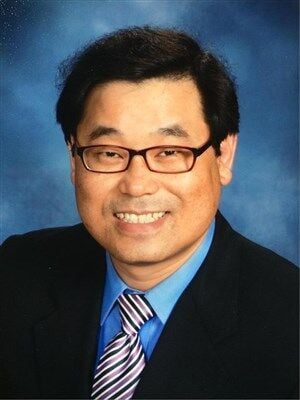A woman had a dream while she was napping. In her dream, she visited a marketplace and stumbled upon a small, mysterious shop. The mystery deepened when she realized the shopkeeper was God. Overjoyed to recognize God, she asked, âWhat do you sell here, Lord?â God replied, âWhatever you want.â Astounded, she understood that she could receive anything she asked forâit was exactly what she expected from God.
Contemplating this rare opportunity, which she knew might never come again, she decided to ask for the most valuable things in the world. After much thought, she confidently requested, âMay I have the fruits of peace, love and happiness? Iâd like to buy them.â She considered herself wise and faithful for not asking for money, power or longevity, but instead for peace, love and happiness. However, Godâs plans are always beyond human understanding. With a gentle smile, God responded, âOh, you must be at the wrong store. Iâm sorry, we donât trade in fruits. We only have seeds.â
Most of us desire the fruit rather than the seeds; we overlook the process of growth. But God doesnât give us fruits to eat; God gives us seeds to plant.
Reflecting on this, I once stopped by a grocery store and lingered, contemplating the price tags. The numbers on these tags were too simplistic to reflect the time, sweat and energy workers invested in the production process. We see only the visible, printed numbers.
Why donât we include not only the price and company name but also the names of the workers and the time and effort they invested on the labels? This could transform how we perceive the things we buy. We would receive products with a deep appreciation for the workers. Instead of merely thinking, "I paid for this, so I deserve it," we would transcend a purely transactional mindset and recognize the sweat, time and passion the workers invested. We would be less likely to waste resources, understanding the true effort behind their production.
The number on the price tag symbolizes our mindset and attitude toward life. We see only the fruits, unaware of how the seeds grow. We simply pay for the fruit at the store and enjoy it. However, itâs crucial to pay attention to the growing process. This isnât about tracking every small step, which would require science classes, but rather about respecting the delicate and mysterious hands of God who nurtures the fruit. If we acknowledge the effort, sweat and time that laborers put into products, we feel a deeper connection to each other. Even without knowing the details of their lives, we begin to care about their work and working conditions.
Most of us donât often think about what happens behind the scenes or beneath the soil. We focus only on what is visible. But we know that God cares about everything. We see trees, flowers and fruits, but God begins with a seed planted in the ground, which sprouts and grows. Sometimes, we misunderstand the teachings about Godâs kingdom, imagining it as a land of abundance to dream about. However, Jesus teaches that Godâs kingdom is not a fruit, but a seed. God created the world and produces the fruits; God is the ultimate source of them. By following Godâs way, we can enjoy every fruitful thing in this world.
You and I, all of us, are called to be seeds in this world, and we need not worry about the fruitsâthatâs Godâs work. Sometimes, we feel crushed by the weight of reality. We experience moments of lament, despair and weariness, wondering, âWhatâs the point of this?â You might feel small and insignificant, even invisible. Itâs easy to forget who you are in Godâs eyes, and easy to overlook what you have to offer in building a loving, caring and embracing community. However, everyone has something to contribute to make life better and different. We simply do our best with what we have, and then God makes it happenâhelping it grow and bear fruit. We donât understand how, and we canât predict the results. All we can do is scatter seeds of love, peace and wisdom in our world, our community, our family.
No one knows what God will do with the seeds we plant. No one knows how big they will grow. Our focus should be on planting as many seeds in our community as we can. When we do this, those seeds will grow in hearts everywhere. I believe that each of us is a seed that brings forth Godâs kingdom in our daily lives. We are called to be seeds, not fruits, because Godâs kingdom is full of opportunities to do good works, not just to reap fruits.












